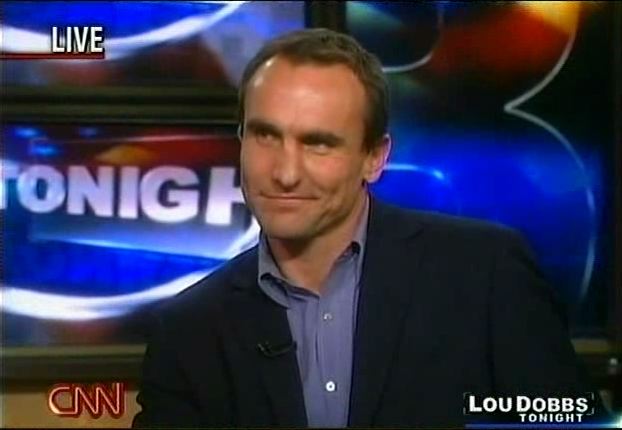LDT: "It's more of the same."

Click photo to play
Length: 4:36
LOU DOBBS: The war in Iraq tonight is at a pivotal point. The first of more than 21,000 U.S. reinforcements have arrived in Baghdad. It is far from clear whether the president's new strategy will work. Joining me now in our studios here in New York, our Baghdad correspondent Michael Ware. Michael, good to have you here.
From Chicago, General David Grange. One of our most distinguished former military leaders and our distinguished military analyst here, good to have you here, Dave.
Let me start you, Michael Ware, fighting less than a mile from the Green Zone. Two days of fighting. Intense fighting, what does it mean?
MICHAEL WARE, CNN CORRESPONDENT: Well, it's more of the same quite frankly, Lou. I mean this is Haifa Street. I can't tell you how many times I've personally seen combat in Haifa Street. How many times I've seen the insurgents there in the heart of the capital regenerate themselves.
Now this was also a model at one stage for Iraqi control. It was handed over to Iraqi security forces. Yet again the American troops are back in there, it's at least the third time that I know of.
DOBBS: General Grange, where are those Iraqi battalions, what in the world are we doing?
BRIG. GEN. DAVID GRANGE (RET), CNN MILITARY ANALYST: Well, just like any other war, we have advisers with the foreign military. I remember it in Vietnam. You have units that are good, you have units that are not so good. I was fortunate to be with tough units that were great fighters. Some are not. I think it's the same thing in Iraq.
And if they don't have good leadership, if they're poor soldiers in discipline, if they don't have the will to fight for the central government, you are going to have the same thing that Michael said. It's just gonna turn back over to the enemy.
DOBBS: Give us your judgment, which is the biggest threat right now? To our troops in -- particularly in Baghdad: the Shia, the Sunni? Where is the enemy and what are we to do with that enemy?
WARE: Look, I think to this day, the fact still remains that the daily drip feed of American deaths and casualties is by in large coming from the Sunni insurgency. The Shia militias, the Shia death squads, whilst they don't withhold fire from US forces, they are not the principle target.
So it's still battling Sunni insurgents and al Qaeda but the biggest threat to the mission is the civil war, is the dominance of the Shia militias, is their stranglehold on political power.
DOBBS: David Petraeus in his confirmation hearing and he was recommended out, of course, by the Senate Arms Services Committee. Dave, he said this is a test of wills, it's hard but it's not hopeless. But he said in conclusion there are no guarantees.
I commend the general for serious and sober and honest talk. Do you think we'll continue to hear honest assessments and honest judgments publicly expressed by this general, a four-star, who will be in charge of our troops in Iraq when he's confirmed to lead those troops?
GRANGE: I believe we will, Lou. I think that General Petraeus will tell it like it is. Hopefully he'll have the political backing where he is allowed to talk the truth. And can give reality as it is on the ground. And I think that'll happen. It is all about will. And I like his comment, that it's hard but it's not hopeless. I mean he's a soldier. Of course it's not hopeless. Anything is capable in warfare. And I think with his leadership and some others that are on their way over there and some that are there now, we have a shot at it.
DOBBS: Let me ask you this, because the discussion is turning, again, with now at least late, but at least it is turning to sober assessment by many of our political leaders in Washington.
What is your sense of what will occur in Baghdad, in Iraq, with what is called a phased withdrawal with the ability -- let's assume that General Petraeus is successful and secures Baghdad? First, do you think it is possible to do it with the level of troops and the adequacy the Iraqi troops? What is your take?
WARE: Is there enough troops to completely secure Baghdad, turn it into a bright and happy place? No. Is it enough troops with a different kind of a tactic to alter the security environment? Yes. Will it defeat or destroy the enemy? No, not at all.
So while it's going to be changed, I'm afraid at end of the day, I see nothing being done to attack the fundamental dynamics that is crippling the U.S. mission.
DOBBS: Michael Ware, General Grange, thank you both. Appreciate it.
